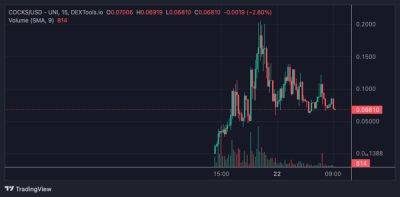How blockchain takes the electronic music industry to a whole new level
Blockchain technology is often associated with the finance industry, namely, the usual suspects like traditional finance (TradFi) or decentralized finance (DeFi). However, the technology is industry-agonistic and can transform any sector that relies on data and interactions. One of the industries that could benefit from blockchain adoption is entertainment — specifically the electronic music market.
The dance music marked valued at around $10,2 billion in 2022, and boasting a dedicated fan base of hundreds of thousands of people, has long been lacking in terms of providing reciprocal benefits to its passionate supporters. Until now, there has been an absence of a cohesive global community that effectively communicates and derives advantages from the considerable contributions made by these fans to the scene.
Due to the highly fragmented nature of the electronic music industry, numerous clubs, festivals, artists and DJs operate independently and are spread around the globe. The lack of a unified platform and cohesive strategy for sustainable growth can hinder collaborative efforts.
Another issue is the lack of customer retention and loyalty programs. Incentives for regular clubbers and party-goers are scarce, leaving patrons with little motivation to continue their support. Without such programs, the ecosystem’s huge potential for customer engagement and retention will continue on untapped. The existing gap in incentives weakens the bonds between the audience and the clubs and festivals they attend, limiting the potential for a more connected and engaged electronic music community.
Source: Unsplash
Blockchain technology has the potential to address these challenges and offers much more, helping the industry redefine itself
Read more on cointelegraph.com





















